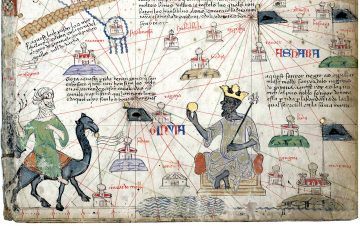Howard W. French at The New York Review of Books:

There is a broad strain in Western thought that has long treated Africa as existing outside of history and progress; it ranges from some of our most famous thinkers to the entertainment that generations of children have grown up with. There are Disney cartoons that depict barely clothed African cannibals merrily stewing their victims in giant pots suspended above pit fires.1 Among intellectuals there is a wealth of appalling examples. Voltaire said of Africans, “A time will come, without a doubt, when these animals will know how to cultivate the earth well, to embellish it with houses and gardens, and to know the routes of the stars. Time is a must, for everything.” Hegel’s views of Africa were even more sweeping: “What we properly understand by Africa, is the Unhistorical, Undeveloped Spirit, still involved in the conditions of mere nature, and which had to be presented here only as on the threshold of the World’s History.” One can hear echoes of such views even today from Western politicians. Donald Trump referred to a number of African nations as “shithole countries” in 2018, and French president Emmanuel Macron said in 2017, “The challenge Africa faces is completely different and much deeper” than those faced by Europe. “It is civilizational.”
more here.
